Blended Curriculum

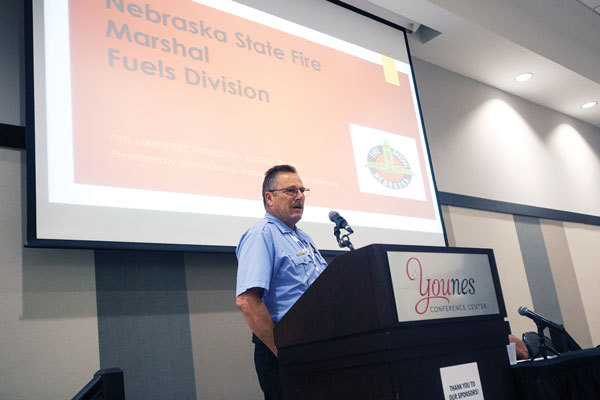
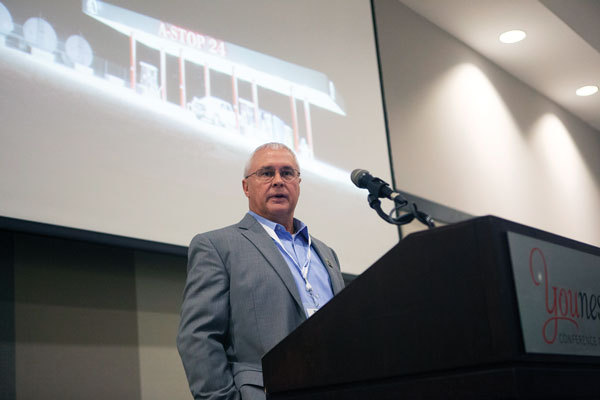
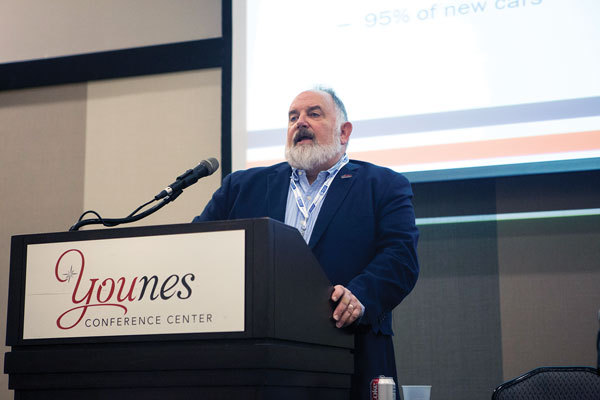
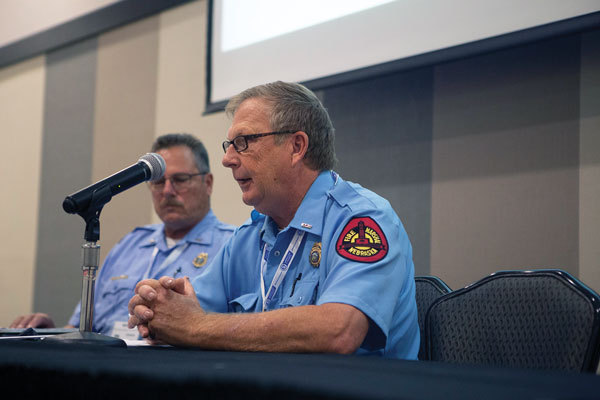
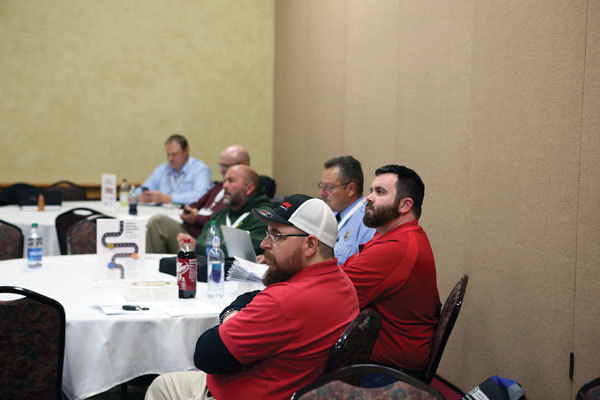
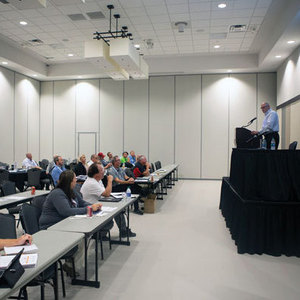
January 21, 2020
BY Lisa Gibson
Considering updating his fuel dispensers, Dan O’Neill, president and CEO of Kwik Stop Convenience Stores, attended a Nebraska Ethanol Board E15 Retailer Workshop. Now, O’Neill will be adding blender pumps for E15, E30 and E85 at five Kwik Stop locations.
O’Neill is one of many attendees of the NEB’s workshops—one held in August and one in November—who had positive feedback, says Roger Berry, administrator with NEB. Each meeting has hosted about 25 to 30 attendees representing retailers of varying sizes, and many who didn’t have E15 capability before are now looking into it, Berry adds. The workshops are designed to cover the process of preparing to sell E15 blends and higher, from start to finish. “We’re getting together all of the steps for retailers to start installing higher blends,” Berry says, adding that the education focuses not just on E15. “We’re calling it E15 workshops, but we’re focusing on higher blends.”
He doesn’t have an official count of how many retailers have walked away from the sessions ready to move forward with E15, but says he has heard from several who are “getting the wheels in motion.”
In Class
NEB’s workshops are held in a classroom setting and broken down into a few sessions. First, a fire marshal speaks to the group, then a representative from weights and measures outlines labeling, then another speaker addresses equipment needs, a retailer details his or her own experience, and finally, financial resources are explored. Infrastructure is usually the biggest obstacle and the main topic attendees want to discuss, Berry says.
Douglas Rasmussen, refined fuel and lubricants leader at Frontier Cooperative in Brainerd, Nebraska, attended the November workshop and says the fire marshal and speakers representing other retailers were particularly valuable. “Hearing from other companies tell about their experiences was not only interesting, but I gained what I would call valuable insight to the process,” he says.
“That’s crucial,” Berry says of retailer input. “They’re learning from someone who is doing it.”
O’Neill adds that input from weights and measures experts was crucial, as well. “There has been some confusion on the part of operators regarding what we can and cannot sell, when we can sell it, and how it needs to be labeled,” he says.
Workshops have had speakers from ethanol trade groups on their agendas, too. The next is Feb. 20 in Lincoln. The idea is to keep hosting them around the state to encourage retailers to sell higher blends and answer any questions they might have about it. Berry says the workshops were prompted by the Reid vapor pressure waiver for E15. After the waiver was granted, NEB saw a need to answer questions and offer education to retailers to get them started, he says.
Other Resources
Cassidy Walter, director of communications for the Iowa Renewable Fuels Association, says the state doesn’t have workshops, but IRFA does offer guidance on funding sources—such as the Iowa Renewable Fuels Infrastructure Program—for retailers looking to install pumps.
“We don’t find that retailers have a hard time here in Iowa,” Walter says of the lack of need for educational sessions. “We can help them understand the [Iowa Renewable Fuels Infrastructure Program] grant process. Iowa regulations are pretty straightforward. We don’t see that retailers struggle to understand regulations.”
At least four stations in Iowa added E15 after the waiver in summer of 2019, she says. “That in itself is evidence to me that retailers are looking at that.”
In South Dakota, the Ethanol Producers Association was instrumental in securing ongoing legislative appropriations for South Dakota’s ethanol infrastructure fund in 2018, says Dana Siefkes-Lewis, president of the SDEPA and chief administrative officer of Redfield Energy LLC in Redfield, South Dakota. Siefkes-Lewis says the fund is designed to award incentive grants to retailers for purchase and installation of blender pumps and tanks and associated piping, storage systems and equipment; for purchase of pumps and pump equipment to dispense gasoline containing up to 85 percent ethanol; and to encourage increased use of ethanol.
“SDEPA is currently focused on statewide policies to promote the use of higher biofuel blends that benefit consumers, retailers, farmers, municipal governments and taxpayers across South Dakota,” Siefkes-Lewis says.
South Dakota, Iowa and Nebraska aren’t alone. Many states with ethanol production have programs aimed at expanding the sale of E15 and higher blends, some with a focus on educating retailers.
Berry says Nebraska’s retailer workshops could be a roadmap for other states to use as they focus on helping new and more retailers offer E15. “I would encourage all states to do this,” he says.
“I think anyone who wants to remain relevant in the retail fuel industry should attend this workshop,” O’Neill says. “If nothing else, to stay educated on trends, regulations and guidelines. It is especially important now to support our state ag economy.”
Author: Lisa Gibson
Editor, Ethanol Producer Magazine
701.738.4920
lgibson@bbiinternational.com
Advertisement
Advertisement
Related Stories
The U.S. Energy Information Administration maintained its forecast for 2025 and 2026 biodiesel, renewable diesel and sustainable aviation fuel (SAF) production in its latest Short-Term Energy Outlook, released July 8.
XCF Global Inc. on July 10 shared its strategic plan to invest close to $1 billion in developing a network of SAF production facilities, expanding its U.S. footprint, and advancing its international growth strategy.
U.S. fuel ethanol capacity fell slightly in April, while biodiesel and renewable diesel capacity held steady, according to data released by the U.S. EIA on June 30. Feedstock consumption was down when compared to the previous month.
XCF Global Inc. on July 8 provided a production update on its flagship New Rise Reno facility, underscoring that the plant has successfully produced SAF, renewable diesel, and renewable naphtha during its initial ramp-up.
The U.S. EPA on July 8 hosted virtual public hearing to gather input on the agency’s recently released proposed rule to set 2026 and 2027 RFS RVOs. Members of the biofuel industry were among those to offer testimony during the event.
Upcoming Events










